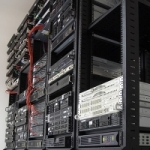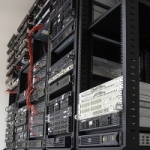Directive Blogs
Social media might make it easy to stay connected, but it comes with a lot of negative side-effects--particularly in regard to security for both personal and professional use. If social media isn’t used properly, it could spell trouble for your organization. How can you foster proper social media usage so that your organization doesn’t suffer from poor security practices? It all starts by spreading awareness.
At the end of the day, do you shut down your computer or do you put it into sleep mode? Depending on what you need from your device the next day, you might want to consider which option benefits you the most. Here are some of the pros and cons of both approaches so that you can pick which one best suits your situation.
Email is a modern classic as far as business solutions are concerned, and you’d be hard-pressed to find an office that didn’t use it in some capacity or another. However, because email is so popular, it has become a favorite attack vector of malicious users. Fortunately, there are some basic practices that will help keep your email account secure and your communications private.
Nothing lasts forever - especially your business’ technology. However, you shouldn’t just get rid of your old technology willy-nilly. This is mostly for two reasons: one, many of the components in our technology are really bad for the environment; two, carelessly disposing of technology is a great way to put your data at risk. In order to protect your data, you need to make sure that your old equipment is properly disposed of.
Nowadays, every company relies on some kind of software in order to properly function, so you need to ensure that this software is properly managed in order to maintain operations. While this may sound like a grand undertaking, software management is relatively simple and can be whittled down into three steps: leveraging the assets available, testing your strategies, and understanding what it is you have.
Humankind has always adapted and improved technology to make life easier, starting all the way back at fire and the wheel. Nowadays, our approach to making life easier through technology is centered around productivity and security - if we can accomplish more than before in the same amount of time, without worrying that it will be stolen, we’re happy.
Do you have cords, wires, and adapters just sitting in a cupboard or drawer, with no purpose other than taking up space? Of course you do. The average person will replace old or broken devices, and find the new devices aren’t compatible with the old cables, leaving them stuffed in a junk drawer or in a random box that they’ve kept “just in case.” Every home or business has the same scenario going on: lots of wires and cables left over from all the e-waste they have discarded over the years. If you want to get rid of your unwanted cables, here are a couple of tips on how to do so properly.
Computers need to be maintained in order to ensure that they are working as optimally as possible. It’s also known that technology solutions are prone to failure, be it from users making mistakes, deliberately ruining something in a fit of rage, or components simply failing. If you’re concerned about the wellbeing of your organization’s IT, then you need to rely on a technology specialist who can manage and maintain it.
The best way to attract your audience is by understanding what they want from your business. Even something as simple as changing up the color of your branding to be more inviting can be extremely helpful. This kind of process is called A/B testing, and it can help you make improvements to the way your business operates.
As headlines shout about Hurricane Florence approaching the East Coast later this week, with Helene and Isaac also stirring in the Atlantic Ocean, it seems as good a time as any to discuss preparing your business for hurricane season; and, really any adverse weather effects that could negatively influence your business. Preparing your business for events like these is key to its survival, making it crucial that you know what your responsibilities are when awaiting a potentially devastating event such as a hurricane.
 Nobody likes thinking or talking about this (except maybe if you are in the insurance business), but businesses are fragile entities. Enough hardship and loss will greatly weaken the foundation that keeps the business running smoothly. What if your business suffered from a fire, devastating flood, or even a misfortunate bolt of lightning that destroys your server? Would you be able to pick up the pieces and start over?
Nobody likes thinking or talking about this (except maybe if you are in the insurance business), but businesses are fragile entities. Enough hardship and loss will greatly weaken the foundation that keeps the business running smoothly. What if your business suffered from a fire, devastating flood, or even a misfortunate bolt of lightning that destroys your server? Would you be able to pick up the pieces and start over?
We talk a lot about business and technology and all of that good stuff here on the Directive blog, but believe it or not, there are (at least) a couple things in life that are more important that that. One of the big ones is personal health. This goes double for all you hard workers out there who put in long stressful hours trying to run and manage your business - it's easy to forget or skip over the routines for proper health maintenance. Unfortunately, we don't offer a flat-rate remote monitoring and maintenance service for humans, but here are a few tips you can do to keep yourself in tip-top shape while on the job.
 Global Payments, a credit card processing firm, announced that as many as 1.5 million credit card numbers were stolen due to a security breach last month. Issues like this seem more and more common place in the news and it is important to know what to do if you suspect that your credit card has been hacked.
Global Payments, a credit card processing firm, announced that as many as 1.5 million credit card numbers were stolen due to a security breach last month. Issues like this seem more and more common place in the news and it is important to know what to do if you suspect that your credit card has been hacked.
In today's IT industry, downtime can have a huge impact on your company's bottom line. When system downtime occurs, whether it affects an individual employee or the entire company, it means lost money. The definition of the term "downtime" is very ambiguous, although at Directive we consider any issue where an employee can't do their job properly due to technology not being available to be downtime. Even though an application may be up and running, it is essentially "down" to a user if the application can't be used no matter the reason.
 Protecting your business network from the threats lurking on the Internet is crucial for a small business. Threats of all shapes, sizes, and severities are out there and if they get into your network you could be looking at some serious issues ranging from data theft to extended downtime. Fortunately, there is a single solution available that can deliver a total security package to protect your business from virtually any outside threat.
Protecting your business network from the threats lurking on the Internet is crucial for a small business. Threats of all shapes, sizes, and severities are out there and if they get into your network you could be looking at some serious issues ranging from data theft to extended downtime. Fortunately, there is a single solution available that can deliver a total security package to protect your business from virtually any outside threat.
We've been blogging a bit about ways to prepare for laptop theft and what to do if a company laptop is actually stolen. Laptop and mobile device theft is a widespread issue for businesses and can lead to data theft which can be extremely costly; much more than the mere price of the hardware. This issue is all too familiar with NASA, which admits that thousands of mobile device theft incidents have occurred over the past few years.
If you use email, you've probably seen spam. If you think we're talking about a canned meat product, and are wondering how it relates to email, then we envy you. For everyone else, saying your inbox probably has a little spam is a dramatic understatement. Spam comes in several different flavors; ranging to inappropriate solicitations to unwanted gibberish to carefully coordinated scams. We're going to go over one of these tricky spoofs that is known to fool users.
One of the questions we get fairly often is what are the benefits for a small business switching to a managed IT service as opposed to a break-fix-style relationship. When a new client calls upon us to resolve an issue or organize an IT project we talk to them about our proactive managed services, and often we get a reply like "Well we love your service, but we'll just call you when something is broke." Managed services offer a lot of stability and benefits for small businesses. What exactly can switching to a proactive managed services agreement with your IT provider do for your business?
 For small and medium businesses, attempting to fix your own computer issues can do more harm than good. It may seem like having to pay for IT services is an unnecessary expense, especially when you have a somewhat tech savvy employee who seems to know what they are doing. It may be an expense now, but it will save you thousands of dollars in time and money in the long run.
For small and medium businesses, attempting to fix your own computer issues can do more harm than good. It may seem like having to pay for IT services is an unnecessary expense, especially when you have a somewhat tech savvy employee who seems to know what they are doing. It may be an expense now, but it will save you thousands of dollars in time and money in the long run.
A lot of Upstate New York small businesses are taking advantage of regular proactive maintenance that keeps their servers and workstations in tip-top shape much longer than their typical lifespan. Amazing amounts of money are saved on new hardware and downtime and everything is just peachy! You've been able to run that old server for years and you have workstations that are still chugging away on Windows XP. What you don't know is that your old technology, even if it is in perfect working order, could be drastically slowing things down for your business.
Does it seem like every day your network is suffering from a different issue? How about the same old issues that keep coming back? Think about how much time is wasted every day while you and your employees have to cope with viruses, malware, and oddball technology issues. What if we told you there is an easy solution that will eliminate 99% of these problems?
Today, small businesses that go green and take action towards reducing energy consumption, waste production, and apply sustainability concepts benefit from a lower cost of day-to-day business. Being green looks great for investors, employees, and consumers alike and can contribute to press and media attention. That sounds great, right? Unfortunately, like most things, going green isn't something you can do over night. It takes time, dedication, and sometimes, a little bit of investment. Hit the jump for some tips to go green with your business.
 Businesses are inundated with information, programs and quick solutions on making companies green. Some of these suggestions can be implemented today, others my take more time. However, going green, can save your organization significant amounts of money. Wasted paper, plastic cups and wasted electricity are all money literally thrown away. Here a few suggestions to get you off on the right foot:
Businesses are inundated with information, programs and quick solutions on making companies green. Some of these suggestions can be implemented today, others my take more time. However, going green, can save your organization significant amounts of money. Wasted paper, plastic cups and wasted electricity are all money literally thrown away. Here a few suggestions to get you off on the right foot:
As a business owner, if you've ever looked into training seminars, you've probably been taken back by the price. Your industry likely has a whole slew of organizations dedicated to business training, and there are often training courses on specific software packages you use in your day-to-day line of business. Your employees may know full-well how to do their job, but are they doing it as effectively as possible in order to drive business forward?
When you mention the term 'disaster recovery,' most people think about the big ground-shattering events like earthquakes, fires, floods, tropical storms, etc. While these natural events are certainly disasters and devastating in their own right, smaller things can constitute as a disaster for your business, and they aren't seasonal.
We can never stress enough to our clients how important their data is. There are plenty of ways data can become lost, but the one scenario that nobody ever likes to talk about is internal data theft. That's right; businesses can suffer from their own employees stealing data. Now, this doesn't mean that all or any part of your staff is plotting to expose company secrets or distribute your leads to competitors, but a few precautions can be taken to just ensure that it never happens.
Small business owners are discovering they don't need to be chained to their desk to use their computer, and are finding it much easier to be productive with the ability to take their workstation with them where ever they go. The concept isn't new, but the trend hasn't caught on for a lot of small businesses. Business owners who have ditched their desktop for a laptop have a whole world of benefits. Let's take a look at what some of those benefits are.
Let's get theoretical here. Let's say your friend Hank suffers from chest pain. It could be nothing, but chest pain isn't something you want to mess around with, so you suggest that Hank goes to a doctor to get it checked out. There are certain things in life you don't just let happen without getting an assessment to make sure they don't turn into bigger issues, right? Your business's IT security is one of those things.
Software is expensive, especially business critical software. On top of that, as a small business expands, more software licenses need to be purchased for new employees. Organizations such as the Software & Information Industry Association and the Business Software Alliance are always looking for businesses that are guilty of stealing software, and businesses that get busted get hefty fines exponentially higher than the price of the software licenses.
When computer equipment overheats it increases the chances of a crash. Heat (or inadequate heat removal) can even cause long term damage on expensive hardware. You may have noticed that your server room/network closet is a little warmer than the rest of your business. All computer equipment produces heat, and servers are known to pump out a lot of it. Let's talk about ways to keep your important technology cool to prevent crashes and other issues.
When computer equipment overheats it increases the chances of a crash. Heat (or inadequate heat removal) can even cause long term damage on expensive hardware. You may have noticed that your server room/network closet is a little warmer than the rest of your business. All computer equipment produces heat, and servers are known to pump out a lot of it. Let's talk about ways to keep your important technology cool to prevent crashes and other issues.
 Hopefully, you have a list of personal items that you regularly clean. Obvious belongings that need a good scrubbing are things like bed sheets, dishes, and your bathroom floor. If your computer is not on your cleaning chore list, then it needs to be. A clean computer is a happy computer, and not disgusting like a dirty one.
Hopefully, you have a list of personal items that you regularly clean. Obvious belongings that need a good scrubbing are things like bed sheets, dishes, and your bathroom floor. If your computer is not on your cleaning chore list, then it needs to be. A clean computer is a happy computer, and not disgusting like a dirty one.
 Modern technology makes it easy to get things done from anywhere, allowing employees to work while on the go. One of the caveats of working while traveling is keeping focused. Unlike sitting in the office where an employee can focus, traveling puts workers in busy airports, coffee shops, or poolside at a hotel. Here are a few tips to help you focus on tasks while on the road.
Modern technology makes it easy to get things done from anywhere, allowing employees to work while on the go. One of the caveats of working while traveling is keeping focused. Unlike sitting in the office where an employee can focus, traveling puts workers in busy airports, coffee shops, or poolside at a hotel. Here are a few tips to help you focus on tasks while on the road.
Nobody wants to spend more than they have to, especially when it comes to those necessary evils like bills, utilities, insurance, and the general costs of keeping things running smoothly. At Directive, our goal is to provide outstanding enterprise-level solutions for small business prices. Let's talk about a few ways to cut long term IT costs.
We'd really like to gear this conversation towards the other Oneonta business owners out there who might not have a solid plan when it comes to IT & Computer Support. At DirectiveSHORT, we deal with a lot of the same business-related issues that our clients do. Marketing, driving the business forward, taxes, internal policies, you name it. Believe it or not, we also have our own IT infrastructure that needs to be kept up and maintained. We see the same kinds of expenses (after all, working on our OWN technology internally is time our techs could be doing their jobs). We've put together a few big mistakes that we've seen businesses make that take much less effort to prevent than they do to fix later on when it is too late.
Virtualization isn't new for small businesses, some companies have been enjoying the benefits of server virtualization for many years. However, the concept is new to other growing organizations. Virtualization allows you to consolidate the number of servers you have in your company using one of several virtualization packages. Let's take a look at a few major reasons to consider server virtualization.
Directive has had the pleasure of working with David Mann for over 10 years. David owns Alta Log Homes in Upstate NY. Alta is a leading manufacturer of Log Homes. David is an expert in building Green, Energy Star dream homes and a great guy. His website is http://www.altaloghomes.com. We set him up with the Ultimate Social Media Rig a few months ago along with some coaching services to get him started. He's been pretty religious about posting and using it. He sent me an email asking what recommendations I'd have to get more out of it now that he's "warmed up" and has a little more experience with Social Media.
Server virtualization offers a ton of benefits for small businesses - less energy consumption, easier management, better hardware utilization, smaller footprints... but diving in recklessly can cause a lot of expensive headaches. Let's take a look at a few things to consider when switching over to a virtual solution.
Did you know? Microsoft reported in May that every one in 14 downloads from the Internet may now contain malware code. Keeping your business protected is extremely important. Fortunately there are plenty of tools out there that do most of the protecting for you, but these tools need to be managed and kept up to date.
You’ve probably noticed that when you search for a particular business using words like or similar to “near me,” Google will display three business options at the top of your search results, and then will load additional businesses once you click “More places.” Remember - people in your area that are looking for a business like yours will probably be doing exactly that. How can you make sure you are in those top three results?
Is your business prepared to handle all kind of online threats? A recent study shows that it probably isn’t. According to the think tank Ponemon Institute, four out of five businesses don’t have the infrastructure or security experts they need to spot and prevent incoming cyber attacks from succeeding. This is a significant statistic that can’t be ignored, especially if you want to secure your business.
Today, we want to talk about something that not a lot of businesses would want to think about. What would happen to your organization if it were to suddenly experience a hacking attack? While security solutions can go a long way toward protecting your organization, you still want to make sure that you’re not relying solely on your security tools for protection. Rather, you should always stay vigilant, even if you don’t think something could go wrong.
Business owners require ubiquitous access to certain information stored on their organization’s infrastructure. Thus, there’s an immediate need to safeguard this data from any sort of impending destruction. We’ll discuss ways that you can prevent the worst when it seems like your data will fall victim to a loss incident.
Just over a third (36 percent) of businesses don’t back up business data at all, and apparently this number isn’t keeping some IT providers up at night (not the case for us). Your businesses’ data is precious, irreplaceable, and extremely expensive to lose. Let’s talk about how delicate and dangerous it is to not have it backed up.
Here’s a question: on a scale of one to ten, how confident are you that your employees are acting in the best interests of your organization’s network security? How confident are you that you’re setting a good example when it comes to handling your business’ security? Unfortunately, any confidence you have on this matter may be misplaced.
It doesn’t matter where your business is located--chances are you’re susceptible to thunderstorms. Lightning storms are very unforgiving, and they can lead to all sorts of problems for unprepared businesses. We’ll discuss some of the ways that your organization could be affected by a lightning storm, as well as how you can take measures to mitigate these dangers in the future.
Some organizations want to better understand the process that they use to take backups of their data and restore them in the event of an emergency. This is great, because the value of being able to do so cannot (and should not) be understated. A proper data backup and disaster recovery system could be all that stands between prosperity and failure.
With the surge in the number of small and medium businesses that have fallen prey to malware and cyber criminals, there is a lot of focus of what an organization can do to prevent being a victim and how the company should handle themselves after an attack. There is another key factor to preventing cyber criminals from penetrating into your network: your employees.
Spring seems to be the natural time, after what are commonly dreary winter months, to revitalize and refresh your environment - why shouldn’t your business be included? Not only does it help your operations, a clean environment also has many direct benefits for your employees. Let’s review the effects of keeping your business, and its technology, in order.
The traditional computing structure has been under siege by cloud computing for the past several years. More businesses than ever are seeing the value in cloud-hosted applications and infrastructure, and while that may not be a huge surprise, the perceptions that the cloud can solve any of your organizational computing problems depend largely on the needs of that endeavor. Today, we will take a look at successful small business cloud strategies and tell you why they find success.
 Which is worst, fingernails scraping down a chalkboard or slow internet? A person who would answer the former has likely never experienced internet speeds in excess of 1 Mbps. It is a proven fact that faster is better. Before you decide to complain to your Internet Service Provider (ISP) or even switch providers, make sure that you are informed about what your internet speed is and should be.
Which is worst, fingernails scraping down a chalkboard or slow internet? A person who would answer the former has likely never experienced internet speeds in excess of 1 Mbps. It is a proven fact that faster is better. Before you decide to complain to your Internet Service Provider (ISP) or even switch providers, make sure that you are informed about what your internet speed is and should be.
When engaging in business-to-business marketing, your content plays a huge role in your success. Whether you’re creating social media content, blogging, creating articles for your web pages, creating newsletter content, or even working an in-person event, you need to make sure your content is effectively benefitting your marketing.
We’re here to help, so we’ve compiled some key considerations to make as you shape your content marketing strategy through each of the above tactics.
 Security is a hot-button issue for all types of businesses, but cyber security is such a complex subject that it’s difficult to jam-pack its many intricacies into one blog article. Sometimes understanding just a few ways to improve your business’s security practices can be a significant benefit for your organization.
Security is a hot-button issue for all types of businesses, but cyber security is such a complex subject that it’s difficult to jam-pack its many intricacies into one blog article. Sometimes understanding just a few ways to improve your business’s security practices can be a significant benefit for your organization.
 Business owners who spend a lot of time on the road, like during a commute or on a business trip, understand how difficult it is to use smartphones while driving. Despite the fact that it’s illegal in many places, some people refuse to put down their phones and concentrate on the task at hand: driving. Doing so puts not only themselves, but everyone else on the road at risk of an accident, which can lead to expensive insurance payments and vehicle maintenance costs.
Business owners who spend a lot of time on the road, like during a commute or on a business trip, understand how difficult it is to use smartphones while driving. Despite the fact that it’s illegal in many places, some people refuse to put down their phones and concentrate on the task at hand: driving. Doing so puts not only themselves, but everyone else on the road at risk of an accident, which can lead to expensive insurance payments and vehicle maintenance costs.
 When you call tech support, you’re probably going to get the same response every single time: “Have you tried turning it off and on again?” There’s a reason that this happens so often, and it’s because restarting your computer is a great, low-tech way to resolve some basic issues with your system. However, it’s still good to be cautious about more serious issues that a reboot won't fix. We’ll walk you through what a reboot does, and it can be effective at fixing minor issues with your PC.
When you call tech support, you’re probably going to get the same response every single time: “Have you tried turning it off and on again?” There’s a reason that this happens so often, and it’s because restarting your computer is a great, low-tech way to resolve some basic issues with your system. However, it’s still good to be cautious about more serious issues that a reboot won't fix. We’ll walk you through what a reboot does, and it can be effective at fixing minor issues with your PC.
 There are some workdays where distractions are abound and you can’t even remember what you’re supposed to be doing. In trying times like these, you need all the help you can get, just to stay focused and on task. Here are four simple adjustments to your work routine that have been proven to do wonders to increase productivity.
There are some workdays where distractions are abound and you can’t even remember what you’re supposed to be doing. In trying times like these, you need all the help you can get, just to stay focused and on task. Here are four simple adjustments to your work routine that have been proven to do wonders to increase productivity.
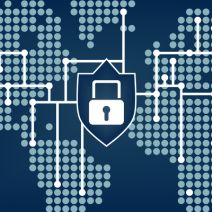 Security is a top priority in today’s business environment, especially following high-profile hacks of notable enterprises. Unfortunately, the fact of the matter is that these hacks could have been prevented if both the employees and employers of these organizations followed strict security best practices for their technology. Thankfully, it doesn’t have to be hard to teach your team how to properly use technology.
Security is a top priority in today’s business environment, especially following high-profile hacks of notable enterprises. Unfortunately, the fact of the matter is that these hacks could have been prevented if both the employees and employers of these organizations followed strict security best practices for their technology. Thankfully, it doesn’t have to be hard to teach your team how to properly use technology.
 Today, just about everyone has a digital camera in their pockets, which has led to an unprecedented amount of picture taking compared to the days when photos had to be developed. Having more cameras has turned us into a more visual society, but not every amateur photographer understands how to best manage all of their photos, which causes problems.
Today, just about everyone has a digital camera in their pockets, which has led to an unprecedented amount of picture taking compared to the days when photos had to be developed. Having more cameras has turned us into a more visual society, but not every amateur photographer understands how to best manage all of their photos, which causes problems.
 October is Cyber Security month. We want to bring attention to this very important issue affecting every person and organization connected to the Internet. When discussing cyber security, we often talk about computer viruses and malware, but these threats are only part of the cyber security equation. It’s just as important that you, your staff, and even your family, are mindful to not overshare information online that can compromise your organization’s security and personal identities.
October is Cyber Security month. We want to bring attention to this very important issue affecting every person and organization connected to the Internet. When discussing cyber security, we often talk about computer viruses and malware, but these threats are only part of the cyber security equation. It’s just as important that you, your staff, and even your family, are mindful to not overshare information online that can compromise your organization’s security and personal identities.
 The Internet can be a dangerous place thanks to the anonymity it provides. Yet, this anonymity is limited, especially if you take part in questionable Internet browsing activities. Take, for instance, the hack of Ashley Madison, a website dedicated to cheating on one’s spouse. This July, a hacker group called the “Impact Team,” infiltrated the site and is now threatening to expose these cheaters.
The Internet can be a dangerous place thanks to the anonymity it provides. Yet, this anonymity is limited, especially if you take part in questionable Internet browsing activities. Take, for instance, the hack of Ashley Madison, a website dedicated to cheating on one’s spouse. This July, a hacker group called the “Impact Team,” infiltrated the site and is now threatening to expose these cheaters.
 For many office workers, there seems to be some confusion concerning the privacy of employee-to-employee communications made over a company network. It is okay for an employer to go through an employee’s email or instant messaging history? Many workers may be surprised to learn that an employer is in their legal right to do so.
For many office workers, there seems to be some confusion concerning the privacy of employee-to-employee communications made over a company network. It is okay for an employer to go through an employee’s email or instant messaging history? Many workers may be surprised to learn that an employer is in their legal right to do so.
 Paid time off is somewhat of an anomaly to the business owner. They don’t want to provide too little and destroy morale, yet they don’t want to lose capital by providing too much to their employees. It might seem strange to suggest unlimited paid time off, but according to some business owners, it might be a quality solution to this dilemma, with enough care put into its integration.
Paid time off is somewhat of an anomaly to the business owner. They don’t want to provide too little and destroy morale, yet they don’t want to lose capital by providing too much to their employees. It might seem strange to suggest unlimited paid time off, but according to some business owners, it might be a quality solution to this dilemma, with enough care put into its integration.
 Have you ever found yourself neck deep in a major business project and nothing seemed to be working? In times like these you may have thrown up your hands and said, “There must be a better way to do this!” Often times there is, and it’s in the form of new technology. Is your current IT provider familiar with the latest technologies that can make operations easier for your business?
Have you ever found yourself neck deep in a major business project and nothing seemed to be working? In times like these you may have thrown up your hands and said, “There must be a better way to do this!” Often times there is, and it’s in the form of new technology. Is your current IT provider familiar with the latest technologies that can make operations easier for your business?
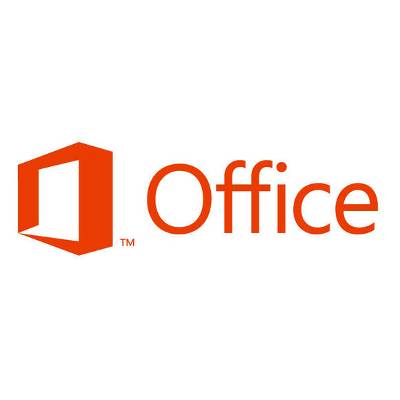 Does your office practice proper maintenance and security against the latest threats, like Sandworm and CryptoWall 2.0? You should, or else your business might get a nasty holiday gift in the form of the Schannel vulnerability in Microsoft Office. This particular threat allows a hacker to take over the entire system, making it an exceptionally dangerous vulnerability that you can’t ignore. Thankfully, a patch is available to the general public, so you want to apply it as soon as possible.
Does your office practice proper maintenance and security against the latest threats, like Sandworm and CryptoWall 2.0? You should, or else your business might get a nasty holiday gift in the form of the Schannel vulnerability in Microsoft Office. This particular threat allows a hacker to take over the entire system, making it an exceptionally dangerous vulnerability that you can’t ignore. Thankfully, a patch is available to the general public, so you want to apply it as soon as possible.
 A laptop with no power can be a pain, especially when it only lasts a minimal amount of time. Sometimes it feels like you can’t operate at full capacity without leaving your laptop plugged in at all times. Thankfully, you don’t have to suffer from this, and with a little bit of troubleshooting and basic PC maintenance, you can prolong the life of your laptop’s battery significantly.
A laptop with no power can be a pain, especially when it only lasts a minimal amount of time. Sometimes it feels like you can’t operate at full capacity without leaving your laptop plugged in at all times. Thankfully, you don’t have to suffer from this, and with a little bit of troubleshooting and basic PC maintenance, you can prolong the life of your laptop’s battery significantly.
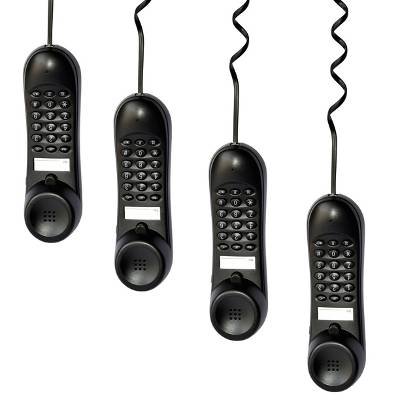 With all the attention given today to scams over the Internet, it’s easy to neglect classic scams like con artists using the phone to exploit people. You may think that you’re safe because you have a smartphone with caller ID, but thanks to new spoofing tactics, reliable defenses like caller ID can no longer be depended upon to safeguard you from telemarketer scum.
With all the attention given today to scams over the Internet, it’s easy to neglect classic scams like con artists using the phone to exploit people. You may think that you’re safe because you have a smartphone with caller ID, but thanks to new spoofing tactics, reliable defenses like caller ID can no longer be depended upon to safeguard you from telemarketer scum.
 Whether it’s warranted or not, some people are worried about the spread of the Ebola virus. Office employees should also be concerned with the many other cooties that remain on common surfaces. This points to sanitation as a primary issue, especially in public places like your office. Among many other surprising germ-transmitting mediums, like money, cats, and dogs, technology accumulates a lot of ilk which could potentially spread to the entire office… that is, if you’re not careful to nip it in the bud.
Whether it’s warranted or not, some people are worried about the spread of the Ebola virus. Office employees should also be concerned with the many other cooties that remain on common surfaces. This points to sanitation as a primary issue, especially in public places like your office. Among many other surprising germ-transmitting mediums, like money, cats, and dogs, technology accumulates a lot of ilk which could potentially spread to the entire office… that is, if you’re not careful to nip it in the bud.
 Hackers are mysterious. Not much is known about them - until they get caught, at least. But until the divine hammer of justice is brought down upon them, they will continue to stalk the shadows and wait for us to unknowingly hand over our personal information. What they don't want you to know is that they generally act according to a few particular variables, and that it is possible to avoid their pitfalls.
Hackers are mysterious. Not much is known about them - until they get caught, at least. But until the divine hammer of justice is brought down upon them, they will continue to stalk the shadows and wait for us to unknowingly hand over our personal information. What they don't want you to know is that they generally act according to a few particular variables, and that it is possible to avoid their pitfalls.
 You've just started your own small business, and your head is swimming with ideas that you want to share with the entire world. You create a blog and publish a few articles, but only get a few hits. You sigh, write another entry, and then shut down your computer for the night. This happens for a few days, which turn into weeks, and months, and something doesn't feel right to you. Why aren't you getting any viewers?
You've just started your own small business, and your head is swimming with ideas that you want to share with the entire world. You create a blog and publish a few articles, but only get a few hits. You sigh, write another entry, and then shut down your computer for the night. This happens for a few days, which turn into weeks, and months, and something doesn't feel right to you. Why aren't you getting any viewers?
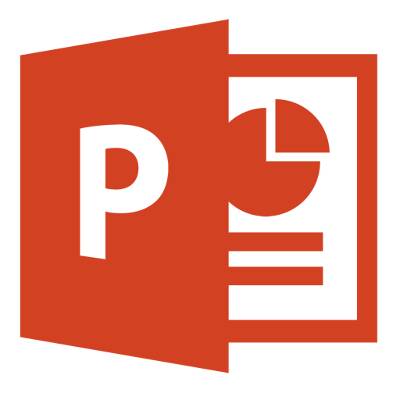 Everyone dreads presentations, but for different reasons. Some people are just afraid of public speaking, or they are just overall unorganized. In the end, well designed presentations are essential for your company's success, whether they are given to clients or to your employees. Thankfully, there are ways to minimize the stress that giving a presentation can cause. One of the best ways to prepare a presentation is to use a Microsoft PowerPoint slideshow as an aid.
Everyone dreads presentations, but for different reasons. Some people are just afraid of public speaking, or they are just overall unorganized. In the end, well designed presentations are essential for your company's success, whether they are given to clients or to your employees. Thankfully, there are ways to minimize the stress that giving a presentation can cause. One of the best ways to prepare a presentation is to use a Microsoft PowerPoint slideshow as an aid.
However, it's very easy to fall into "PowerPoint Purgatory", a place filled with overburdened slideshows that last for hours on end. The amount of professionals who don't use PowerPoint effectively far outweigh those who do. Directive is here to help by providing you with some useful tips to make your presentations both easy for the presenter and for the audience!
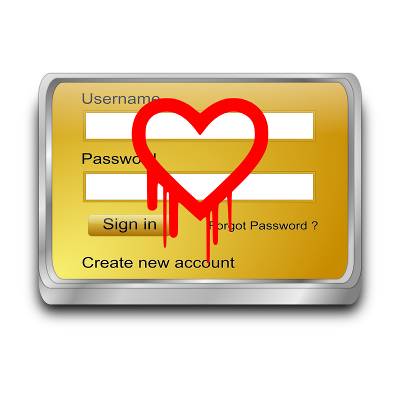 Last week, the Heartbleed bug was identified as a weakness in the OpenSSL cryptographic library, potentially leaking two-thirds of the Internet's secure information from any websites utilizing this encryption style. While most major websites such as Google, Yahoo, and Facebook released patches quickly, it does little to actually remediate the problem. Your data could have been leaked over the year-plus that the vulnerability could have been accessed. There is no way to know if it has been compromised.
Last week, the Heartbleed bug was identified as a weakness in the OpenSSL cryptographic library, potentially leaking two-thirds of the Internet's secure information from any websites utilizing this encryption style. While most major websites such as Google, Yahoo, and Facebook released patches quickly, it does little to actually remediate the problem. Your data could have been leaked over the year-plus that the vulnerability could have been accessed. There is no way to know if it has been compromised.
 About the same time that the late six-term Alaskan Senator Ted Stevens was proclaiming that the "internet is not something that you can just dump something on. It's not a big trunk. It's a series of tubes", a phenomenon that would transform the Internet was just starting to go mainstream. Virtual social networking, an idea that had been developed for the better part of a decade was swiftly starting to take a foothold on the web.
About the same time that the late six-term Alaskan Senator Ted Stevens was proclaiming that the "internet is not something that you can just dump something on. It's not a big trunk. It's a series of tubes", a phenomenon that would transform the Internet was just starting to go mainstream. Virtual social networking, an idea that had been developed for the better part of a decade was swiftly starting to take a foothold on the web.
 Not too many years ago comedian Jeff Foxworthy became a star with his trademark "You Might Be a Redneck If..." jokes. Rednecks are an interesting breed that do things backwards because they stubbornly believe that it's the best way, and like all of us, rednecks use technology. Are you a technology redneck? Check out our redneck technology list to find out.
Not too many years ago comedian Jeff Foxworthy became a star with his trademark "You Might Be a Redneck If..." jokes. Rednecks are an interesting breed that do things backwards because they stubbornly believe that it's the best way, and like all of us, rednecks use technology. Are you a technology redneck? Check out our redneck technology list to find out.
 We've reached a point with technology that we're totally dependant upon it to accomplish most mission-critical business tasks. This is great for getting business done efficiently, but being dependent upon technology makes operations virtually impossible when technology fails. This is called downtime, and your business needs to be prepared for every downtime scenario possible.
We've reached a point with technology that we're totally dependant upon it to accomplish most mission-critical business tasks. This is great for getting business done efficiently, but being dependent upon technology makes operations virtually impossible when technology fails. This is called downtime, and your business needs to be prepared for every downtime scenario possible.
 Before the XXII Olympic Games in Sochi, Russia, there were concerns from several influential entities about the data security at the Olympics. These concerns were reported leading up to the games and on the eve of competition, the NBC Nightly News with Brian Williams ran a story by reporter Richard Engel that intimated that visitors to Sochi were immediately being hacked when they signed into the public WiFi accounts provided to athletes, media, and guests of the games.
Before the XXII Olympic Games in Sochi, Russia, there were concerns from several influential entities about the data security at the Olympics. These concerns were reported leading up to the games and on the eve of competition, the NBC Nightly News with Brian Williams ran a story by reporter Richard Engel that intimated that visitors to Sochi were immediately being hacked when they signed into the public WiFi accounts provided to athletes, media, and guests of the games.
 There seem to be some commonly unspoken rules about the appropriateness of using certain technology throughout the course of the workday. You may have an IT practices policy in your office, but for some of us, we need to infer proper times, places, and limits of our technology use. Here are some courtesy tips for tech use throughout your day at the office.
There seem to be some commonly unspoken rules about the appropriateness of using certain technology throughout the course of the workday. You may have an IT practices policy in your office, but for some of us, we need to infer proper times, places, and limits of our technology use. Here are some courtesy tips for tech use throughout your day at the office.
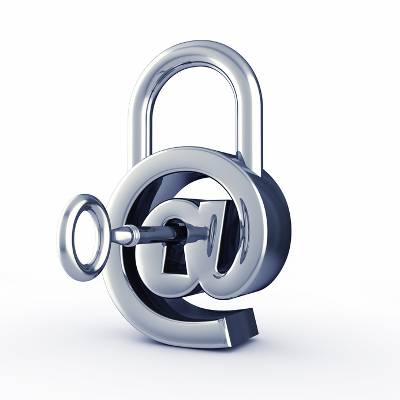 You may think that the standard security policies that come with your email account can protect you from hackers. It's an easy mistake to make, but the truth of the matter is that, if a hacker really wants access to an account, then they will employ every tactic possible to get it, which can make standard password security measures woefully inadequate.
You may think that the standard security policies that come with your email account can protect you from hackers. It's an easy mistake to make, but the truth of the matter is that, if a hacker really wants access to an account, then they will employ every tactic possible to get it, which can make standard password security measures woefully inadequate.
 You may have realized that marketing and advertising tactics are shifting toward reaching mobile leads. Even superstar companies like Google and Facebook are delegating more marketing dollars to their mobile marketing budgets after a discovery that nearly one-fifth of Google's revenue comes from mobile searching. Here are three ways your company can start up your mobile marketing initiative.
You may have realized that marketing and advertising tactics are shifting toward reaching mobile leads. Even superstar companies like Google and Facebook are delegating more marketing dollars to their mobile marketing budgets after a discovery that nearly one-fifth of Google's revenue comes from mobile searching. Here are three ways your company can start up your mobile marketing initiative.
























